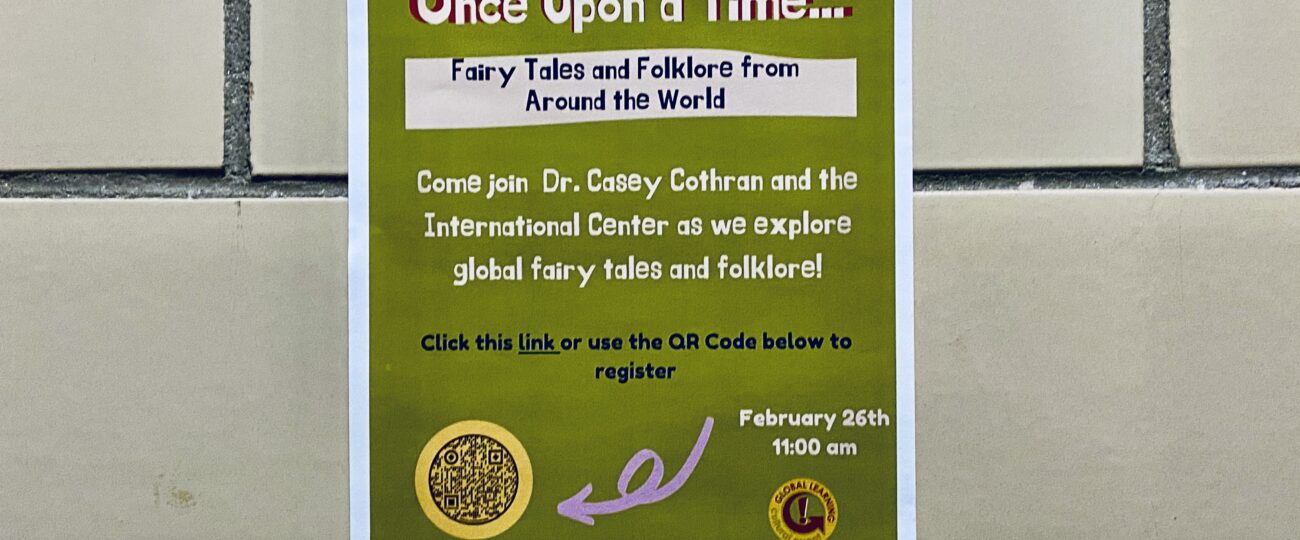Every child knows the fateful words, “Once upon a time.” Those words signal the beginning of an adventure where magic abounds, where anything is possible, where true love conquers all, and where good always triumphs over evil. We hear these stories as children and see them on the silver screen but what many don’t know is that some of these fairytales have histories spanning millennia.
This will be the topic of Feb. 26 cultural event, “Once Upon a Time, All Around the World.” This cultural event will be hosted by Dr. Casey Cothran, an associate professor and the department chair of English here at Winthrop. Dr. Cothran has a great love for fairytales, and she claims to have “always read fantasy novels and have always had an interest in fairytales. Certainly Disney fairytales are fun, but I enjoy reading a lot of the older, less popular ones.”
She earned her doctorate in 19th Century British literature, which was a time when fairy tales and folklore were being collected and published by people such as Andrew Lang and the Brothers Grimm.
Dr. Cothran explained how folklore has shaped cultures. They were originally stories passed down orally, and “one of the joys of fairy tales is that they’re always evolving,” Cothran said.
Cinderella, for instance, one of the most popular fairy tales today, actually traces its roots back two thousand years to the ancient civilizations of Greece and Egypt.
According to an article written for Vox, what is considered to be the first Cinderella story is about a Greek courtesan named Rhodopis, who “has one of her shoes stolen by an eagle, who flies it all the way across the Mediterranean and drops it in the lap of an Egyptian king.”
The Cinderella story of rags-to-riches has almost become a genre of its own. When speaking about it, Dr. Cothran brought up adaptations such as Hillary Duff’s A Cinderella Story and Roger and Hammerstein’s Cinderella. Even Pretty Woman, starring Julia Roberts, can be seen as a retelling of the fairy tale.
As Dr. Cothran wondered, “What is it about these stories that are so attractive to us that we keep telling and retelling it?”
After a brief lecture from Dr. Cothran, the cultural event will see several international students talking about folklore and fairytales from their own c0ultures. Dr. Cothran expressed her excitement that this would be “giving our international students an opportunity to share some exciting, fun, magic stories from their different cultures” and “an opportunity for Winthrop’s American students to hear about some of the neat tales from different parts of the world.”
The theme that nearly all fairytales have in common is a message of hope. Dr. Cothran said that “the joy of most fairy tales is that they typically show an individual going on some sort of heroic quest to overcome seemingly impossible odds, and I think that’s why we like these stories. They give us hope that dragons can be slain, that we can wake up out of a dark slumber.”
Whether that involves hope that we can get through our own personal struggles, or hope on a more global scale such as the current pandemic, it is important for us to believe that we are worthy of a happily ever after.
The “Once Upon a time, All Around the World” global learning cultural event will take place virtually Friday, Feb. 26 at 11:00 am.
Photo by Emma Crouch




